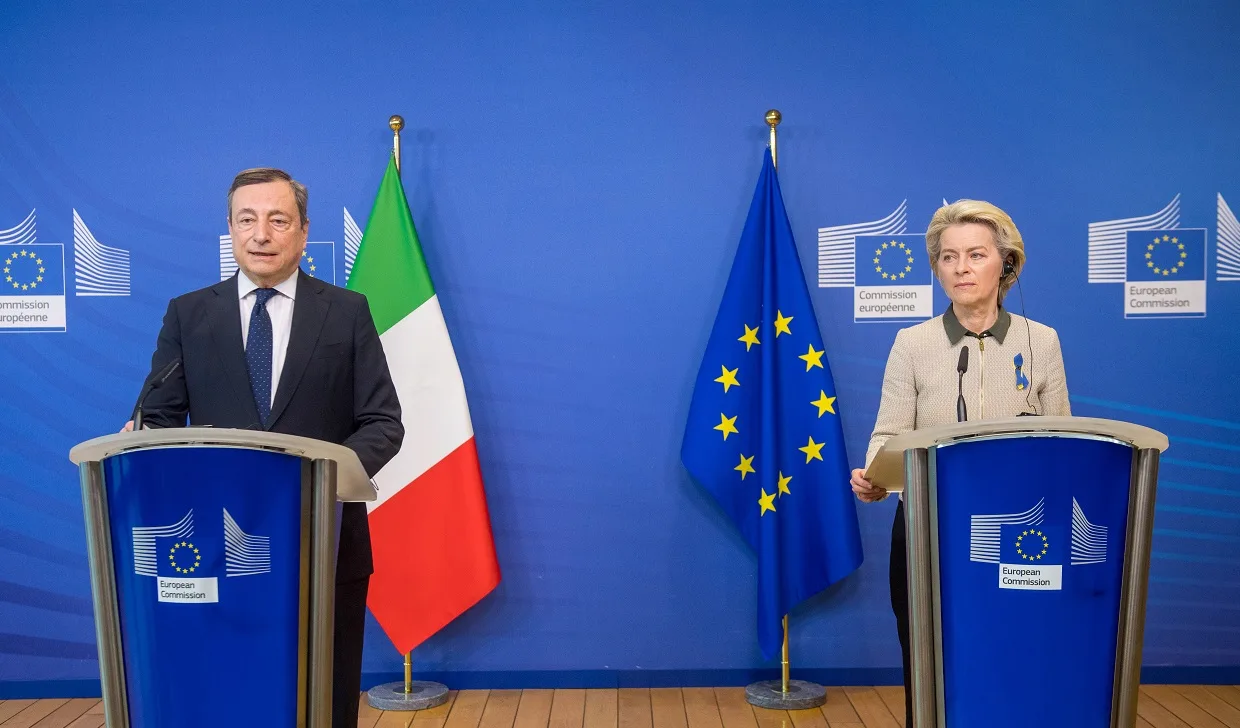Brussels – Don’t look back, much less in the mirror, but move forward with resolve, determination and awareness not of what has been done but of what still needs to be done. Mario Draghi lashes out at Europe, putting it on notice. He sees representatives of the various political groups in the European Parliament and confronts them with a fait accompli: there is a lack of productivity in the technology sector—the key industry for innovation and competitiveness—which needs to be filled. He says this with a sense of urgency, assures Bas Eickout, co-chair of the Greens, at the end of the closed-door meeting. “He told us that Europe is too complacent without understanding that it is losing ground and this is causing him nightmares, for fear that it doesn’t know how to change” and get out of this situation: “He wanted to sound the alarm bell.”
It will be up to politics to get it right; he was commissioned a report on boosting competitiveness to be filled with directions, suggestions, and priorities. He promises to pin it down to ten areas, for each of which limits and options will be identified. “A good thing,” reasons the Green group leader. “Being concrete helps; this way, you get out of the general for the concrete,” although in terms of debate because Draghi calls on politics for the most challenging task.
Sources close to the dossier that the former premier will hand over to Ursula von der Leyen next week assure that Draghi pointed out that European competitiveness has been subject to several “structural brakes” in recent decades. He made a list of them, calling for their removal. These are lagging innovation capacities, higher energy prices, skills shortages, the need to accelerate digitisation, and the urgent need to strengthen Europe’s common defence capabilities.
Draghi’s competitiveness report will be officially presented next week and is expected at the College of Commissioners on Wednesday. His speech and his anticipations are receiving praise from the Greens, as well as from the Popular Party (EPP) and the Liberals (RE). Manfred Weber, leader of the EPP group, speaks of a “good meeting” and admits that he “greatly appreciated, and not only from an economic point of view’, Draghi’s presentation. Renew’s group leader Valerie Hayer is so enthusiastic that she hopes that “the Letta and the Draghi reports will become the foundations of the new European Commission’s political programme.”
On this, however, Draghi makes things clear and does so with the member states’ ambassadors, whom he meets before meeting with the parliamentary group leaders. The success or failure of the EU will depend not so much on what is contained in his report but on how much and how it will be decided to implement it. Sources close to the dossier point out that the former prime minister emphasised that it would be up to EU leaders, MEPs, EU institutions and Member States to decide how to take his work forward and turn his recommendations into concrete results for Europeans. It is therefore made clear whose responsibility this will be.
English version by the Translation Service of Withub![Mario Draghi [Bruxelles, 4 settembre 2024]](https://www.eunews.it/wp-content/uploads/2024/09/draghi-brux-750x375.png.webp)

![Mario Draghi [archivio]](https://www.eunews.it/wp-content/uploads/2022/05/draghi-confstampa-usa-1.jpg.webp)



